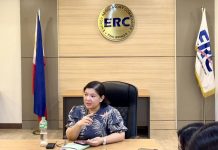
“AMY”, often described by her friends as timid, left the check-in counter at the Ninoy Aquino International Airport with relief. Her older sister is in Australia, about to give birth, and needs Amy to take care of the baby while she and her husband are working.
Amy took a leave of absence for several months, used her savings to buy a roundtrip ticket, flew from Saranggani, and managed to convince the airline staff to shorten her 21-hour layover. She goes through all the lines and waiting in the airport without complaint, excited about surprising her sister with her early arrival. Although unsure about the future, Amy retains a generous spirit, a belief in people and their goodness.
***
Charminia was born in the 1930s. She grew up in the province but raised eight children in Metro Manila, washing cloth diapers and cooking meals and running a business and going to aerobic classes. She deserves a relaxing life in her senior years, but she does not stop. She likes to remind everyone about kindness, hard work, service, and accountability.
To make it to her meetings for the barangay, she needs to climb a flight of stairs, the movement punishing on her knees and legs, but she’s undaunted. Her vigor is not dampened by the behavior of a modern world. Challenges from the younger generation only strengthen her convictions. She is pretty but she is no baby.
***
Dragon slayer. Developmental lawyer. Community organizer. Kaka was at the forefront of the Sumilao farmers’ march to justice. Her legislative advocacy led to the passage of the Reproductive Health Law. She espoused humanizing the law and using legal principles for public interest and public accountability.
After establishing BALAOD Mindanaw, convening the Alternative Law Group, studying abroad, and serving as Party-List Representative, she returned to her hometown. She moves people and changes perceptions with her words, her bravery, her love of country, and always with laughter and camaraderie.
***
Iloilo’s Pura Villanueva Kalaw pushed for the Filipina’s right to vote — eventually granted in 1937 after the first suffrage bill reached the Philippine Assembly in 1907 — and was a leading figure of El Tiempo in Western Visayas. She was also a beauty queen.
The historian, Ambeth Ocampo, gushed about her win: “What makes Pura stand out in the list of early beauty queens has nothing to do with her being the first beauty queen. Rather it is that she raised the bar for the Filipina Oriental Carnival Queen against the favored white American Occidental Carnival Queen.” (https://opinion.inquirer.net/101492/beautiful-with-a-heart) A school in Quezon City was named Pura V. Kalaw.
***
This month, and particularly on March 8, Filipinas will be — should be — celebrated. The Women’s History Month and the International Women’s Day provide an opportunity to recognize the struggles of our kawomenan, to be grateful for their progress and contributions, to address social and professional limitations.
It is everyone’s responsibility to protect a woman — not because she is weak but because she is valuable — and to encourage a woman’s potentials — as a child or in her advanced age — and, always, to respect a woman’s dignity.
Our communities and our families benefit from a woman’s grace, integrity, stubbornness, and creativity, and the world is a much better place because of them.
Mabuhay ang kababaihan!/PN







